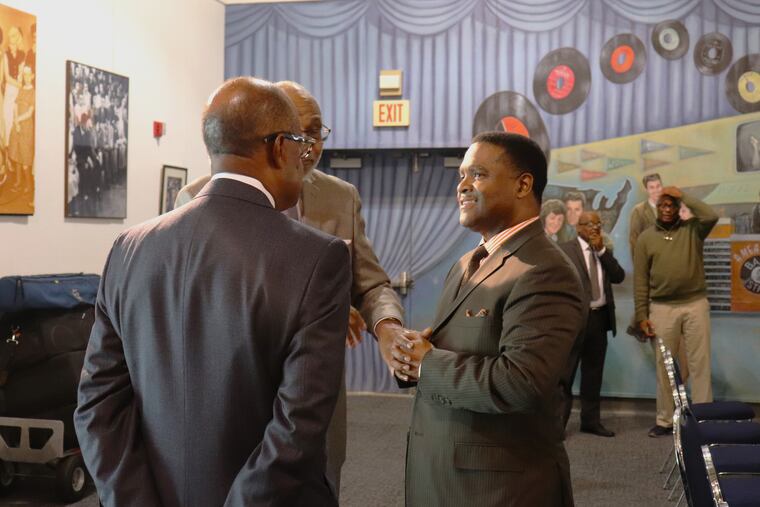Philly is 44% Black, yet our companies get less than 12% of city contracts | Opinion
The city needs to make a concerted effort to partner with businesses owned by people of color whenever possible.

Many people are looking forward to the transportation and broadband upgrades that will result from the recently signed infrastructure bill. Broadening access to the internet will contribute to helping more low-income children grow into more industrious and resourceful adults. Rebuilding roads and bridges is desperately needed to provide safety, increase productivity, and boost commerce. Putting the two of those things together will likely lead to well-paying jobs and create a new ecosystem that will have a long-term impact on our city and region.
However, even with those benefits coming soon, the question remains whether Philadelphia’s Black and brown population will finally share in this momentous wealth-generating event. The record seems to indicate otherwise unless there is a concerted effort from the city and Philadelphia’s corporate community.
Our city continues to fail in addressing the core issue of equal opportunity. The latest annual report from Philadelphia’s Office of Economic Opportunity makes that clear. The report for 2020 shows that slightly less than 20% of city contracts were awarded to minority-owned firms. More specifically, Black-owned companies won only 11.5% of city contracts, while Hispanic-owned businesses garnered only about 3.5%.
Consider the fact that our city is 44% African American. Even understanding that Black-owned businesses do not have the capacity to earn 44% of city contracts at this time, they certainly should have more than 11.5%. They do not have the capacity because they have historically not had access to the kinds of opportunities that would allow those organizations to grow. They have also not been given the kind of mentoring and access to networks that help promote greater opportunity. If those companies are given opportunities now, their capacity will grow in years to come.
» READ MORE: 14 Philly Black-owned businesses to support right now
The city does not yet know exactly how much money it will receive from the infrastructure bill, but over the next five years, it will likely be in the hundreds of millions of dollars. SEPTA could also receive hundreds of millions for transportation upgrades. There will be quite a bit of work to do, and willing and able Black- and brown-owned businesses competing to get a share of that work.
Corporations have also not done enough to encourage the participation of Black- and brown-owned businesses in public projects. There has been a lot of discussion from corporate leaders and groups such as the Greater Philadelphia Chamber of Commerce, of which I am a member, particularly following the senseless murder of George Floyd. However, the business leaders of color whom I have spoken to say they have seen extraordinarily little progress.
Why is it important that we continue to raise this as an issue? In simple terms, there is a tremendous opportunity for the city and its corporate community to find a way to work collaboratively with qualified businesses owned by people of color. I believe there is a link between the success of Black- and brown-owned businesses and Black and brown communities: Where one prospers, so does the other. And prosperity is what is needed to combat the sense of hopelessness and despair which is crippling our city. Equitable participation is key.
“I believe there is a link between the success of Black- and brown-owned businesses and Black and brown communities: Where one prospers, so does the other.”
As Philadelphia’s largest Black-owned company, PRWT Services Inc. (and its wholly owned subsidiary, U.S. Facilities Inc.) makes a concerted effort to partner with Black- and brown-owned businesses whenever possible. Many of these organizations do not have the wherewithal to compete for the larger contracts but are very eager and capable of playing a role as subcontractors with the hope of growing to a point where they can compete for the larger deals.
Equity is a word you often hear as an aspiration. Without action, however, it is just a word. Philadelphia cannot become a truly equitable city until our leaders take the actions necessary to award contracts in a form commensurate with our city’s demographic makeup.
Malik Majeed is president, CEO, and general counsel for PRWT Services Inc. and its wholly owned subsidiary, U.S. Facilities Inc.